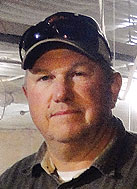
Among the farmsteads in the rolling terrain of the Cane Hill, Ark., area known as the Vineyard Community sits the 365-acre homestead of Ed and Judy Winsted. Now semi-retired, the couple has downsized their agricultural life to a primarily Angus herd of 75 momma cows and four bulls.
Ed decided to be a farmer at age 5 and declared to a grade school teacher that he was wasting his time in school because he needed to be home helping his father farm. Ed had his first pig by age 7 and his first cow by 10. His interest never waned. In fact, he was legally emancipated by age 17. Ed said, “Being legally free was important because that was the only way I could get a loan and really start farming.”
Though the couple met in high school after Judy moved to Arkansas from California, they did not date until after they graduated. Ed and Judy married soon afterward.
Ed already had a good starter beef cattle herd, which helped the couple build a multifaceted organization. Ed’s father had raised cattle, dairy cows and hogs, but Ed decided to use the money he borrowed to enter the rapidly developing chicken market by building chicken houses. He first raised chickens for Campbell Soup and later transitioned to Tyson’s. The couple additionally diversified by adding a dairy where Judy did most of the milking.
One unusual aspect of the Winsted’s dairy operation was that Ed used a horse to drive the dairy cows as well as the beef cattle. At the peak of the Winsted operation, they had a combined herd of 500 to 600 head which used 30,000 square bales in winter.
After 14 years, the Winsted’s abandoned the chicken business. Ed said, “Someone asked me why, and I told them because the dairy made more money.” Later personal demands on Judy’s time became so great that the couple gave up the dairy as well and focused on beef cattle.
Currently the Winsted’s run the bulls with the cows all year long and keep calves until they are about 700 pounds. The calves are vaccinated, dewormed, and dehorned if necessary. They are fed about five pounds of grain per animal per day for 60 to 90 days before being sold. Ed said, “That way they are ready to go, and the buyer has as few concerns as possible.”
Ed has attended the Vineyard Church all of his life, and the couple have attended together since they were married. They are both Sunday school teachers for the church.
Ed and Judy agree that farming was the best choice for them because they love the land and the animals as well as being their own boss. Judy quipped, “Sometimes we trade who’s boss: some days me, and some days Ed.”







